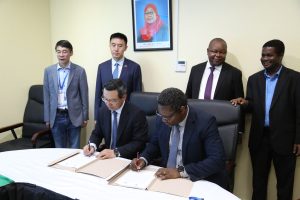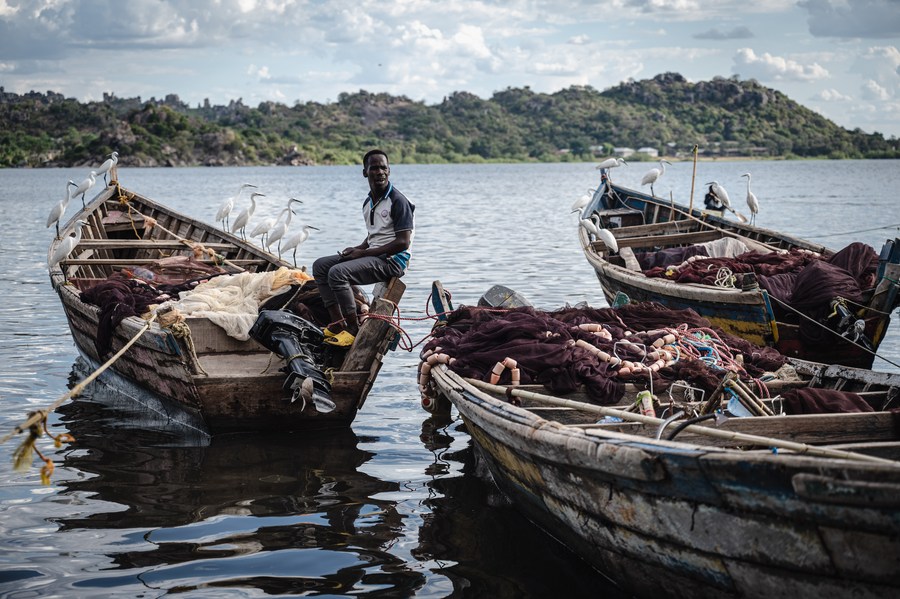Researchers with the Tanzania Fisheries Research Institute attached to Tanzania’s Great Lakes are no longer experiencing headaches when it comes to conducting research, especially on water quality monitoring and eco-environment. The improved efficiency in water monitoring in the Great Lakes follows the donation in April 2023 of state-of-the-art research equipment by the Chinese government through the Nanjing Institute of Geography and Limnology under the Chinese Academy of Sciences.

DAR ES SALAAM – Researchers with the Tanzania Fisheries Research Institute (TAFIRI) attached to Tanzania’s Great Lakes are no longer experiencing headaches when it comes to conducting research, especially on water quality monitoring and eco-environment.
“Our research on water quality monitoring in the Great Lakes has been made easier and we are now enjoying doing it,” Baraka Sekadende, TAFIRI director for the Mwanza center in northern Tanzania, said in a recent interview with Xinhua.
TAFIRI serves as a public institution under the Ministry of Livestock and Fisheries that promotes, conducts, and coordinates fisheries and aquaculture research in Tanzania.
Sekadende said the improved efficiency in water monitoring in the Great Lakes follows the donation in April 2023 of state-of-the-art research equipment by the Chinese government through the Nanjing Institute of Geography and Limnology under the Chinese Academy of Sciences (NIGLAS).
Noting water quality monitoring in Lake Victoria was very important because the water was not only being used for fisheries and aquaculture but was also being used for domestic use in several regions, including Kagera, Tabora, Shinyanga, Geita, Singida, and Dodoma, she stressed the equipment has vehemently helped in monitoring water quality in Lake Victoria, Africa’s largest lake by area and the world’s second-largest freshwater lake shared by Tanzania, Uganda and Kenya.
Ismael Kimirei, the director general of TAFIRI, said at the time when the equipment was donated, TAFIRI’s Mwanza branch was organizing a big sampling campaign to collect information on the suitability of more than 88 sites in Lake Victoria to conduct a strategic environmental assessment to support the Building Better Tomorrow for Livestock and Fisheries Entrepreneurs (BBT-LIFE), an initiative aimed at bolstering youth participation in livestock and fisheries entrepreneurship.
“The equipment came at the right time since they were instrumental in getting this specific task successful. The donated microscopes and spectrophotometer and deionized water generators were very helpful,” said Kimirei.
Great outcomes have been delivered to help the strategic environmental assessment in Lake Victoria, generating very good data which are being analyzed now and which will contribute to advising the government on the best way of managing cage fish farming in Lake Victoria, he noted.

Kimirei said TAFIRI has been collaborating with NIGLAS since 2008 during which they managed to conduct many joint and mutual projects and published many research articles, some of which are currently in peer review.
He said because of this, the Ministry of Livestock and Fisheries in Tanzania signed a memorandum of understanding (MoU) with the Ministry of Science and Technology of China in July 2023 to cement the further relationship and establish a joint laboratory that will serve both the Chinese and Tanzanian researchers and other researchers in the Lake Victoria region.
Kimirei said TAFIRI has a vision of becoming a center of excellence in fisheries and aquaculture research in the Eastern and Southern Africa region.
“We cannot get there with rudimentary equipment,” said the TAFIRI chief. XINHUA



